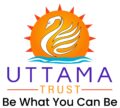WHY ASSESSMENTS MATTER MORE THAN WE THINK
Assessments are not just about marks—they are about mastery. For a long time, assessments have been viewed as mere checkpoints, a way to measure what students know at a given moment. But I see them differently. When designed well, assessments do much more than test knowledge—they shape learning, guide teaching strategies, and ensure that no student is left behind. It’s time we rethink their true purpose. Beyond Marks and Grades Traditionally, assessments have been linked to scores, grades, rankings, and pass-or-fail outcomes. However, true assessments go beyond these metrics. They offer valuable insights into a test taker’s strengths, areas for improvement, and learning styles. When designed thoughtfully, assessments become powerful tools that validate knowledge, skills, and attitudes while informing the teaching and learning process. They foster a growth mindset, helping students recognize that learning is a journey, not just about the test result. A Tool for Better Teaching As an assessment provider, when I analyzed the test results of students from various schools across India who scored low in mathematics, my initial assumption was straightforward—they were struggling with math. However, a deeper analysis revealed something surprising: their mathematical ability wasn’t the issue; their comprehension skills were. These students understood mathematical concepts well but struggled to interpret word problems and instructions correctly. This gap in comprehension led to misinterpretations, incorrect answers, and ultimately, lower scores—despite their true potential in the subject. This made me question: Do learners possess the necessary foundational skills, such as language comprehension, to effectively demonstrate their proficiency in subjects like mathematics? Assessments are not just for students—they are equally valuable for educators. A wellstructured assessment informs teachers about: What concepts students grasp well. Where students struggle and need support. How to adapt teaching methods for different learning needs. By analyzing assessment results, teachers can tailor their instruction, ensuring that every student gets the guidance they need to succeed. Driving Meaningful Learning Education researcher, author, and expert in curriculum design, Grant Wiggins said “What we assess is what we value, and what we value shapes how we learn.” Quality assessments are designed to test critical thinking, problem-solving, and application of knowledge rather than rote memorization. When students engage in well-crafted assessments, they: Develop analytical and reasoning skills. Learn to apply concepts in real-world scenarios. Become more independent and confident learners. Assessments and Inclusivity To be truly inclusive, assessments must accommodate diverse learning needs and backgrounds. This requires careful planning and thoughtful implementation to ensure every student has an equal opportunity to demonstrate their abilities. Key aspects of inclusive assessments include: A balance of formative and summative assessments: Formative (ongoing) assessments provide continuous feedback, while summative (final) assessments measure overall understanding. Varied assessment formats: Incorporating written, oral, and project-based evaluations helps cater to different learning styles. Fairness and accessibility: Providing accommodations such as extra time, assistive technology, or alternative assessment formats ensures equal opportunities for all students. By integrating these inclusive assessment practices, educators can create an environment where all students feel valued and empowered to showcase their true potential. The Road Ahead: Rethinking Assessments In alignment with the National Education Policy (NEP) 2020, assessments must shift from being just evaluative to being diagnostic and remedial. Schools and educators need to: Move away from high-stakes testing to continuous assessment models. Integrate technology to make assessments (and learning) more personalized. Provide actionable feedback that helps students improve. Conclusion: More Than Just a Score Assessments, when designed and used effectively, can be a game-changer in education. They should not instill fear but inspire learning. As educators, policymakers, and stakeholders, it is time we leverage assessments to unlock the full potential of our students.
WHY ASSESSMENTS MATTER MORE THAN WE THINK Read More »
